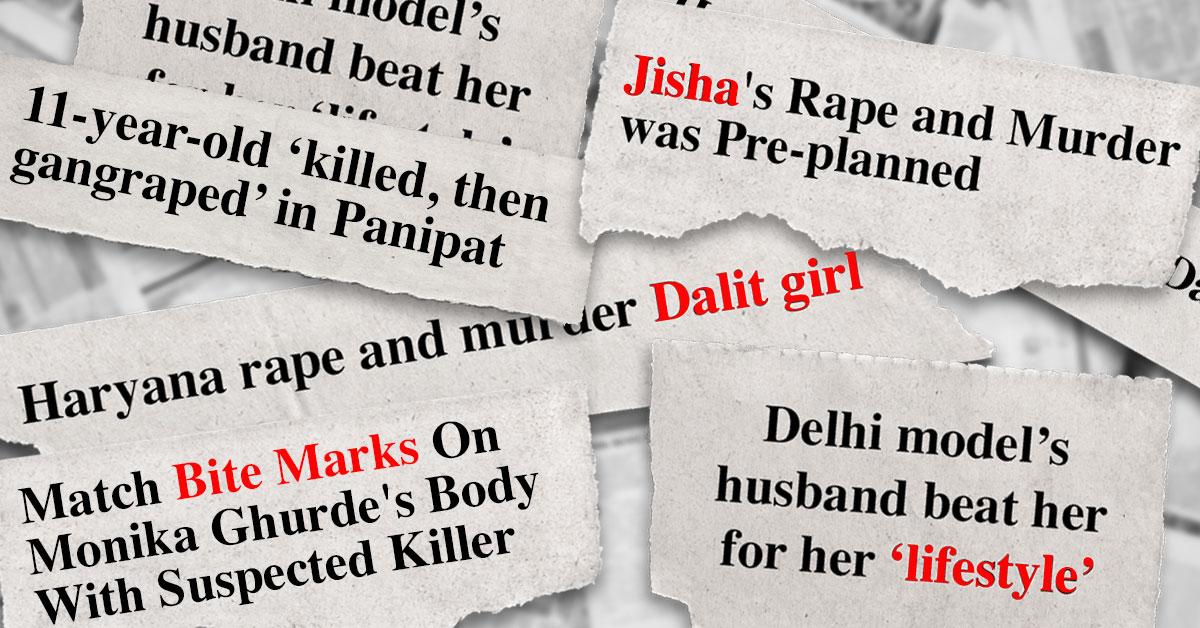When we were being taught journalism in college, our professors made it crystal-clear: As journalists, you need to protect the identity of a gender violence victim. It is a sensitive topic, they would tell us, and it should be covered like one. That meant the rules of an inverted pyramid (5Ws and 1H—What, Where, When, Why, Who, and How) didn’t apply here. Our first responsibility is towards the woman, the child, the human being. Readers and numbers come second.
Now when I see news, read front-page headlines, I am aghast. What happened to the moral code of conduct that was grilled into the class of 19-year-olds?
They are two ways I have seen media report rape in this country: One that hits closer to home when the girl is ‘like us,’ educated, working. The second is when the newspapers make us think the case is miles away from another India, rural, uneducated. What we need to understand is that BOTH ARE THE SAME. We should care about them both equally because there really is no scale to measure who has suffered more, or who deserved it less.
In the past, reporters have revealed the identity of sexual assault survivors because of their myopic reporting (this is a punishable offense under the Indian Penal Code Section 228A). Media has hounded their neighbours, shoved cameras in the relatives’ faces, and forced them to relive the trauma again and again. For one exclusive, for one story that the competitors don’t have, to make money out of someone’s misery. I must have missed the lecture when such tactics were being taught because I clearly remember being told that we were the fifth pillar of the democracy, the watchdogs, and it meant we had to be more perceptive than anyone else.

The time of the night; the place of assault; the clothes on her; the company she did or did not have. It is all immaterial! When you ask such questions, give these details, you are starting the blame game. The victim MUST have done something to bring it on, that’s what your readers are playing in their head and you are enabling these thoughts. Don’t pin it on her. You are feeding the patriarchal mindset when you talk of such things and that’s helping no one.
Focus on the perpetrator instead. What was he wearing? Where was he going? Who was he with? Why did he do it?
Next, talk about her recovery. Be discreet and help normalise things for her. She doesn’t want to be the front-page news with such crude headlines. And in the graphics that you use in your stories, make her stronger. She’s not a bechari; her life is not over. Stand with her, fight with her. And for God’s sake, stop using that image of a defenseless woman fighting off hands. Your narrative needs to change with this photograph.

Want to bring a change in the society? Start with the newsroom. It’s time to educate every reporter on the sensitivity of the matter and how to proceed with it. How much should you talk about her life if it’s irrelevant to the case? Do you really need to dissect every bit of her personal life? Do your readers have to know about the graphic details of the crime? It is disturbing, for us, for your readers, for those who have lived this reality, and their family members.
Rape is part of a larger issue. It doesn’t stop with it, so change the way you tell your story and make a difference. Isn’t that why we became journalists in the first place?



